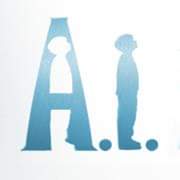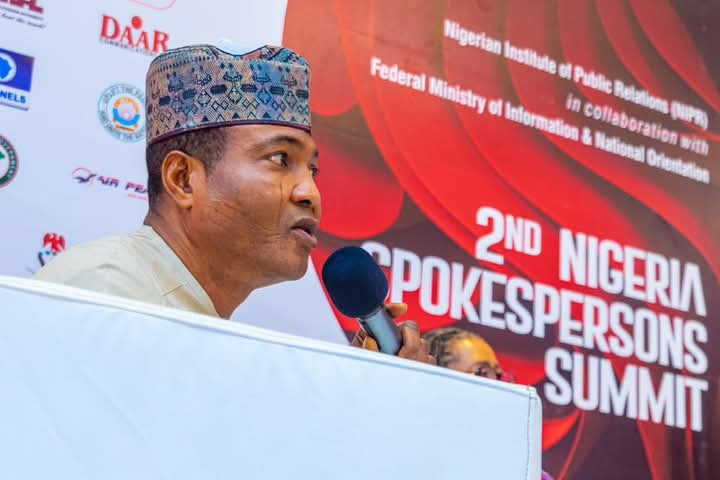Year 2024 in my estimation is gradually unfolding what we may definitely contend with, going forward, as leading global economic bodies have started putting out projections to guard our economic decisions.
The likes of World Bank in it’s recent 2024 global outlook has already informed us that we are going to face sluggish job growth and slower GDP of 3.2%.
On the other hand, International Labour Organization (ILO) released it’s forecast on Global Labour Force on unemployment tipped to rise from the current 5.1% to 5.4%, while revealing that about 2.5million persons across the world would be looking for jobs in 2024.
Interestingly, we have also been notified that global inflation in 2024 would continue to soar higher, just as there is fear that central banks across the world are gearing up to increase interest rate as measure to fight inflationary pressure and related monetary factors.
And back at home here in Nigeria, some few days back, the National Bureau of Statistics (NBS), Nigeria’s official data agency released the latest inflation slightly up by 28.9% from 28.2% recorded previously before December 2023.
NBS’ published report on Nigeria’s labour force report showed a sharp increase in unemployment rate standing over 37%. Experts are showing concerns that NBS should also consider the data around underemployed persons in our nation, for government intervention.
Meanwhile, within two weeks into the year 2024, a lot has happened and still happening, essentially with geopolitical tension in the middle east war between Israel and Hamas. Another is the counter missile launched attacks from Iran on targeted terrorist domain in Pakistan, accused of suicide bombing in the December 2023 procession remembrance of Late Gen. Qasem Soleimani killed by US military drone in 2020.
Also raging is the Yemen Houthis rebel attack on oil cargo ship and others resulting in the US and UK joint targeted attacks base of the rebel.
Similarly, the far East Asia is also heating up with North Korea and South Korea war threat and counter threat at each other. Equally is the roar over the emergency of new government in Taiwan that is making China uncomfortable. Yet still, Sub Saharan Africa is also having her own share of troubles and not to forget South America with raging drug war, prison breaks, as well as the contending migrate explosion concerns from Mexico into United States of America and Canada.
Meanwhile in Europe, the two years old Ukraine and Russia war is still with us.
Sadly, we are witnessing this within the atmosphere of global anxiety, of which the uncertainty definitely have serious implications on the global economic outing this year.
Importantly, as this piece was being put together, the yearly World Economic Forum (WEF) with the theme, “Rebuilding Trust” is ongoing in Davos, Switzerland. The yearly Davos gathering is one of the largest gatherings of global capitalists and their allied partners.
Instructively, for stakeholders and participants, it’s another chance to strike new deals, find new investors and attract new capital.
Having said, the foregoing is to draw our attention to the title of this piece, because of the time we are now. Adding to the fact that my work permitd me to shuttle between newsrooms and research field as a researcher and policy analyst.
Whenever I’m asked the question about Artificial intelligence and future of workers, my modest response has been, AI is here with us, to add value and to subtract redundancy. This, however, is depending on how you view it either as disruptive or generative technology.
Reason being that Economists and Political Economists alike instinctively see technology like the ones that birthed AI as a never-ending story within the spectrum of economic history.
In that, when a new tech such as generative AI that is already making strong entry into the media sector, as believed could increase the productivity of journalists and media experts, it could make some of them redundant, while at the same time create new opportunities for some of them that would adapt AI.
Consequently, Al serves as means to increase their incomes and earnings, and overall impact on journalist efficiencies. Mindful, that this is not limited to journalism and media profession alone, but across other fields, be it military, banking, manufacturing, oil and gas, pharmaceutical, education, transport, agriculture, etc.
Critically, this is what World Bank’s Human Capital Manager, Gabriel Demombynes pointed out recently that
Al is now coming at a lightning pace.
A situation whereby one branch of the Al technology, called generative AI, since 2017 enabled the creation of ChatGPT and a suite of tools for image, voice, and video creation.
But there are reasons to believe because AI is receiving attention at the ongoing WEF in Davos Switzerland. The world is now reminded of what Artificial Intelligence, AI for short, is for the world to take advantage of, for progress of humanity. This also was the argument of David Autor, one of the globally recognized labour economist, with interest on AI and related studies on technology and labour change.
David opined that, AI in the world we live in today, is a gift of ‘promise and peril’ for jobs. In this regard, the promise is that AI will augment human expertise.
On the other hand, the peril is that AI could replace human expertise across whole classes of tasks, given the creative capabilities of already existing AI.
And one person that puts this in an appealing message at Davos was Kristalina Georgieva, the current chief of International Monetary Fund (IMF)
In a well read speech titled, “Artificial Intelligence (AI) Will Transform the Global Economy. Let’s Make Sure It Benefits Humanity”
Kristalina drew global attention to how
AI will “affect almost 40 percent of jobs around the world, replacing some and complementing others”.
And in her appeal is the need for a careful balance of policies to tap its potentials. In addition, she carefully called for global caution, as she said, “We are at the brink of a technological revolution that could jumpstart productivity, boost global growth and raise incomes around the world. Yet, it could also replace jobs and deepen inequality”.
These are instructive statements that cannot be taken lightly, going by the implications of AI economy.
However, the misconception of AI is also a thing we need to clear, due to the apprehension caused by misconception and blindside on AI.
Interestingly, Mustafa Suleyman, one of the pioneer AI technologists in his book, “Coming Wave” argues that we are at the cusp of an epic technological transformation that will rival those wrought by steam engine, electricity, and the digital transistor.
He added that ripple effects of AI will be as far reaching as those of earlier technologies and are impossible to confidently forecast.
For us, these are likely concerns that the IMF Chief wants us to prepare for, as she further mentioned that the rapid advance of artificial intelligence has captivated the world, causing both excitement and alarm, and raising important questions about its potential impact on the global economy.
Bringing this home as in, how is Nigeria and Nigerians preparing for incursion of AI into our space. Our government must show concerns on the issues of AI, even though the attention at the global level is increasing.
IMF for instance carried out studies that it’s finding indicates almost 40 percent of global employment is exposed to AI, with 60 percent of advanced economies’ jobs to be impacted by AI.
And half of the exposed jobs may benefit from AI integration, enhancing productivity. The IMF finding, however, suggested a slightvariation that could happen in emerging markets and low-income countries as a result of being exposed to AI, at about 40 per cent and 26 per cent, respectively. What this portrays is that emerging market and developing economies or low incomes like Nigeria face fewer immediate disruptions from AI.
Nevertheless, this does not mean we should go to sleep or be less concerned. The future of economies is now to be impacted by AI. For us, our dear country needs to start preparing towards it’s adaptation and usage, even though currently, the IMF findings still give us advantage ahead of developed economies.
Due to our poor infrastructure or skilled workforces to harness the benefits of AI potentials, what we can say with confidence is that, as a nation, we must not be left behind in this eminent global shift, and we can’t afford not to take our chances in the AI vast potentials others are leveraging on to benefit humanity at large.
Yet, we should not lose sight of the inherent challenges AI comes with, like increasing global earnings inequality.
Kristalina Georgieva observes, “a troubling trend that policy makers must proactively address to prevent the technology from further stoking social tensions”.
On the other hand, AI comes with it’s own gains that robs off on manufacturing companies’ productivity that may need to drop highly skilled workforce and adopt AI. Same goes for some financial institutions as this would likely boost capital returns, leading to higher earnings for the technically savvy few workforce.
The danger of this is a disproportionate increase in their labor income, a phenomena that could exacerbate inequality.
A warning that the IMF chief and others practically want us to prevent through an AI transition that is more inclusive, and target protecting livelihoods and curb inequality.
Let’s remind ourselves that AI has come to stay. What is now upon us, is our best to distribute and redistribute the economic benefits of AI.
What are the options going forward?
We expect the Nigerian goverment to show readiness in prioritizing AI innovation and integration technology by laying a strong foundation through a national framework of robust regulatory framework.
There is need for the goverment to set a coordinating AI office that would midwife a collaboration of all inter agencies by bringing together the likes of National Agency for Science Engineering Infrastructure (NASENI),
National Centre for Technology Management (NACETEM), Ministry of Science and Technology, Ministry of Defence, and Ministry of Communication and Digital Economy as well as other relevant research institutions.
This will bring about a safe cultivation of ideas towards a responsible national approach to AI space.
Very importantly, we must be able to factor in home grown fiscal, monetary and trade policy to help us tape the revenues in terms of trademark and patents,export and importation of AI products as well as maintaining a robust spending and public investments in digital and technology infrastructure that would support AI.
Similarly, there is need for the Nigerian goverment to also put in place, AI curriculum in basic school level as a measure of inculcating the knowledge in the young ones given the genuine growing concerns for the future.
Consequently, the need for the right publicity and awareness on educating Nigerians so as to limit the
misconceptions about artificial intelligence and what it means for people for Nigerians to understand AI’s implications for economic growth, jobs, and inequality.
Lastly, Nigerian goverment must also join hands with global bodies to see to effecting global principles and approaches to tackling AI problems that are initiated, with priority on the sub Saharan Africa at large.
Adefolarin A. Olamilekan
Political Economists
Email: [email protected] 08107407870:0807314436





